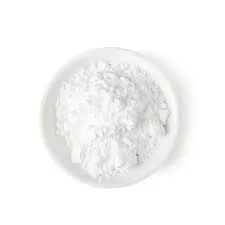Ornithine L-Aspartate An Overview of Its Role in Health and Medicine
Ornithine L-Aspartate (OLA) is a compound formed from the amino acids ornithine and aspartate. Its significance has been increasingly recognized in the fields of medicine and nutrition, particularly regarding liver function and metabolic health. The exploration of OLA has led to its use in various therapeutic applications, particularly in the management of hepatic encephalopathy and other liver-related disorders.
At its core, ornithine is a non-proteinogenic amino acid involved in the urea cycle, which helps to remove ammonia—a toxic byproduct of protein metabolism—from the body. Aspartate, on the other hand, plays a key role in the synthesis of other amino acids and is vital for normal cellular function. Together, they form OLA, which has been shown to have several beneficial effects, particularly in the context of liver health.
Ornithine L-Aspartate An Overview of Its Role in Health and Medicine
In addition to its role in treating hepatic encephalopathy, OLA has been investigated for its potential benefits in other liver-related disorders. Chronic liver diseases, including cirrhosis and liver failure, can compromise metabolic functions and lead to a cascade of health issues. OLA supplementation has been found to support liver function by promoting the detoxification of ammonia and improving overall nitrogen metabolism. This contributes not only to enhanced liver health but also to better nutritional status, which is critical in managing patients with chronic liver conditions.
l ornithine l aspartate

The pharmacological effects of OLA are attributed to its ability to support metabolic pathways that facilitate ammonia detoxification. By promoting the conversion of ammonia into urea and other less harmful compounds, OLA reduces the burden on the liver and helps maintain metabolic balance. Furthermore, its potential to enhance energy metabolism by modulating the activity of certain enzymes makes it an attractive candidate for use in various clinical settings.
From a nutritional standpoint, OLA may also provide benefits beyond its therapeutic applications. Athletes and individuals engaged in intensive physical training may experience increased ammonia levels due to the breakdown of proteins during exercise. Supplementing with OLA could potentially aid in mitigating the effects of elevated ammonia, thereby supporting endurance and recovery. This suggests that OLA may not only be beneficial in clinical scenarios but could also find a place in sports nutrition.
Despite its numerous advantages, it’s essential to approach OLA supplementation with caution. While generally considered safe, the impacts of long-term use, appropriate dosages, and potential interactions with other medications must be further studied. Healthcare providers should consider individual patient needs and conditions before recommending OLA as a supplement or treatment option.
In conclusion, ornithine L-aspartate presents a promising avenue in the management of liver health and metabolic function. Its ability to facilitate ammonia detoxification, support cognitive function, and enhance overall metabolic health highlights its significance in both clinical and nutritional contexts. Continued research is needed to fully understand its mechanisms and optimize its use in various populations, but the current evidence supports the value of OLA as a therapeutic agent and nutritional supplement.

